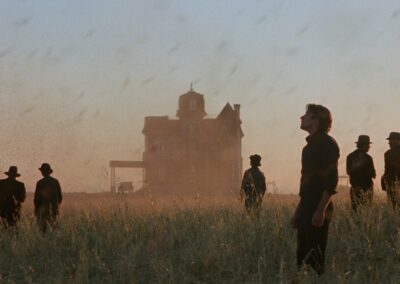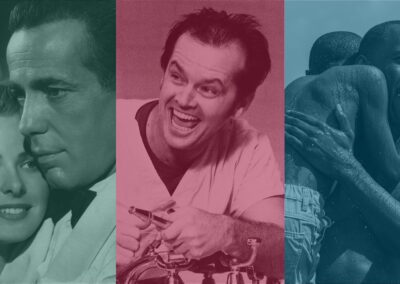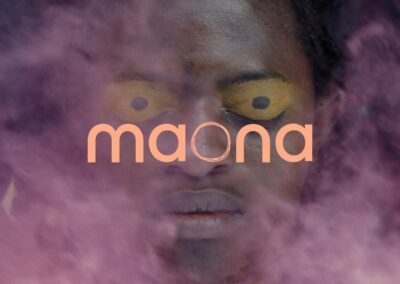Although he won an Oscar for his 1991 hit The Silence of the Lambs, American director Jonathan Demme, who died at 73 in 2017, never quite made the movie brat list, even though he began his career like so many others of the American New Wave working with horror maestro Roger Corman (who also was an early supporter/exploiter of people including Scorsese, Joe Dante, Dennis Hopper, Peter Fonda, Peter Bogdanovich and Jack Nicholson).
With the benefit of hindsight, Demme’s career has a number of highlights, in addition to The Silence of the Lambs (although, personally, I always thought Michael Mann’s Manhunter was superior) which include 1979’s little seen Hitchcockian thriller Last Embrace (scripted by David Shaber) which starred Roy Scheider; 1980’s Oscar nominated Melvin and Howard (written by One Flew Over the Cuckoo’s Nest’s Bo Goldman), 1986’s dark comedy Something Wild, which introduced audiences to the delights of Melanie Griffith and Ray Liotta, which he then followed with the outstanding Swimming to Cambodia – a one man monologue by Spalding Gray about working on The Killing Fields. This is a brilliant film, well worth seeking out – Gray’s suicide in 2004 adding a layer of melancholy to the movie which makes it all the richer. Demme also directed the first major representation of AIDS in a Hollywood film, the Oscar winning, Tom Hanks starring Philadelphia in 1993 (always a music lover, Demme also directed the spin off pop video for Bruce Springsteen, ‘Streets of Philadelphia’, which is one of the Boss’ best songs – which also won an Academy Award) and an assured remake of John Frankenheimer’s brilliant paranoid Cold War thriller The Manchurian Candidate, in 2004, which reunited him with Denzel Washington, who had also appeared in Philadelphia.
There were misses along the way too: 2002’s The Truth about Charlie which was a French New Wave style version of Stanley Donen’s 1963 Audrey Heburn/Cary Grant caper comedy Charade, was tonally all over the place; Goldie Hawn wanted him fired from his first big studio project Swing Shift in 1984 and fans of Toni Morrison may well deride his epic three hour interpretation of her novel ‘Beloved’ from 1998.
In many ways, Demme doesn’t quite fit into the movie brat auteur camp as his films were very diverse, rarely revisiting the same genre or theme, and, whilst he did have a roster of actors who worked with him regularly, he was also happy to collaborate and, amongst the many talented people who often worked with him were cinematographer Tak Fujimoto (also known for his work on Badlands, Ferris Bueller’s Day Off, Gladiator and The Sixth Sense), editor Carol Littleton and composer Rachel Portman.
What makes Demme’s work so interesting (and remember this is a director who was named three times as his big influence by acolyte Paul Thomas Anderson, who directed There Will Be Blood, amongst many other works of genius) is that, whilst it may not be easy to discern an overall thematic concern to his films (although he was certainly good at giving women central roles; adopting a leftist approach to politics and crafting his dramas carefully and tightly) he always kept his love of music close to his heart. Later in his career, for example, he directed videos for New Order (1998’s 11 minute long ‘Perfect Kiss’); 2006’s Neil Young documentary Heart of Gold and, in 2016, Justin Timberlake and the Tennessee Kids. He also directed what many consider to be the greatest live record of a band’s performance ever made – 1984’s still staggering Taking Heads film Stop Making Sense which has just got a digital IMX makeover to celebrate its 40th anniversary and which is screening at the UPP in October.
Talking Heads, fronted by the charismatic David Byrne, had emerged as part of the skinny guitar pop New Wave “movement” which evolved in hipster club CBGB’s in New York, during the late 1970s (Television another such band who found great acclaim with their “classic” album Marquee Moon). However, Byrne was reluctant to be easily categorised and was soon travelling the world with none other than the esteemed ambient guru Brian Eno (whom they had enlisted to produce Fear of Music and their masterpiece Remain in Light) “gathering” and “sampling” world sounds (including an actual exorcism) that would be later used on their highly acclaimed and innovative collaboration My Life in the Bush of Ghosts.
This experience got Byrne thinking about how the tribal rhythms he heard on his travels (and in his head) could somehow be incorporated into his band’s sound and how a live show could become a piece of performance art rather than simply “a gig.” He made three great decisions for the tour to promote their latest record Speaking in Tongues in 1983. The first – that the group would be introduced to the audience one by one – building up as the show progressed from a solo first performance to a full band by about the sixth number. He also decided to buy an oversized white suit and do a bit of jogging. In addition, if he and his all white band couldn’t quite get funky enough – why not augment them with some musicians who could? And Demme was on hand (with cinematographer Jordan Cronenweth – who subsequently shot Blade Runner, amongst many others) to record this newly reborn line-up when they played four nights at Hollywood’s Pantages Theatre in 1983 and what a joyous noise they made.
I saw this back when it was first released, at the time not entirely convinced about the band’s merits – they were American, after all. Byrne was bit nerdy and, yes, it was great they had a female bassist (the superb Tina Weymouth – who in the film is almost as charismatic as Byrne – look out for her magic dance in the Tom Tom Club sequence) but I never liked guitarist Jerry Harrison’s big hair (possibly the one thing that still dates the movie). By the time the movie was over I was a life-long devotee.
What I hadn’t anticipated would be how infectious the performance would be. How life affirming. Clever. Witty. Celebratory. Inclusive. Superbly played. Brilliantly filmed. Magnificent. Muscular. Pulsating. Rhythmic and, hell, sexy. But also natural and unaffected. Demme seamlessly edits together footage recorded across the four nights and keeps a tight focus on the band – the audience only finally appearing towards the end (enraptured and dancing in the aisles). His camera team were given exclusive access to the performers and, as the show unfolds, it’s almost as if we are on stage with them: dancing at their side.
The idea of adding musicians known for their ability to play funk as opposed to rock (Steve Scales, Alex Weir and Bernie Worrell plus backing singers Lynn Mabry and Ednah Holt) was inspired. At the time “disco” music had usually been seen as the domain of black American musicians – so to see the two disparate styles of white boy skinny rock, coupled with the heft of funk, felt new and exciting in the more segregated era of the 1980s.
To be honest, at the time, I don’t think I had ever felt so much pleasure inside a cinema. Had not tapped my feet, felt so euphoric and uplifted, in the way that only great music can affect us. It was a knockout show – superbly mounted on every technical front you can think and then fabulously capturing every aspect of Byrne’s idiosyncratic genius (the energy the musicians display here is awesome) and the pleasure of playing music, evinced in the body language, sweat, smiles and rapport of the other band members. It would be fair to say – they don’t make ‘em like this anymore.
Soon after, Talking Heads, as if burned out by getting too close to the sun, stop playing live and eventually split somewhat acrimoniously; although two of them got married and worked, somewhat surprisingly, with Happy Mondays (a topic covered by drummer Chris Frantz’s autobiography ‘Remain in Love’).Demme does well out of it, using the film as a calling card for his subsequent career as movie director and the rest of us are left with a moment snatched from eternity which we can now revisit in pristine condition, with fellow human beings, in the darkness, on a big screen – sharing the deep bond and connection which the greatest of music engenders. And Talking Heads are amongst the greatest.
I was there in 84, beaming in ecstasy. 40 years later I’m still in raptures.
Dr Andrew C Webber is a Film teacher and examiner with over 37 years’ experience. He currently contributes to both the Cinema of the 70s and 80s magazines (available on Amazon); cassette gazette fanzine (available from cassette pirate on e-bay) and the Low Noise music podcast available on Spotify and Apple podcasts.


